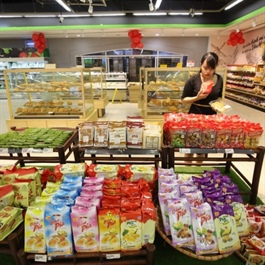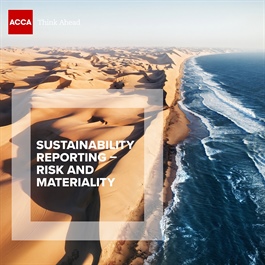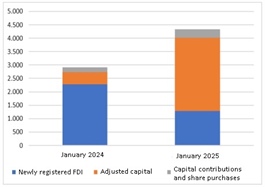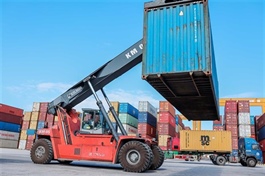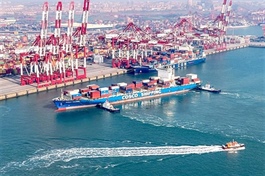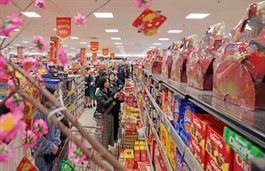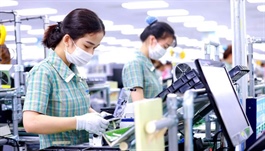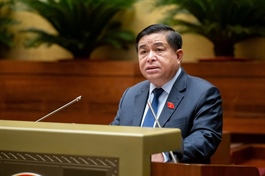Cooperation underscores Japan’s links to Vietnam
Cooperation underscores Japan’s links to Vietnam
Since joining the Colombo Plan in 1954, Japan has provided financial and technical cooperation to low-resource countries through official development assistance (ODA) with the aim of contributing to the peace and development of the international community.
The Japan International Cooperation Agency (JICA) is responsible for managing all ODA schemes, including technical cooperation, ODA loans and grant aid, except for contributions to international organisations. The JICA, one of the world’s largest bilateral cooperation agencies, operates in over 100 countries around the world.
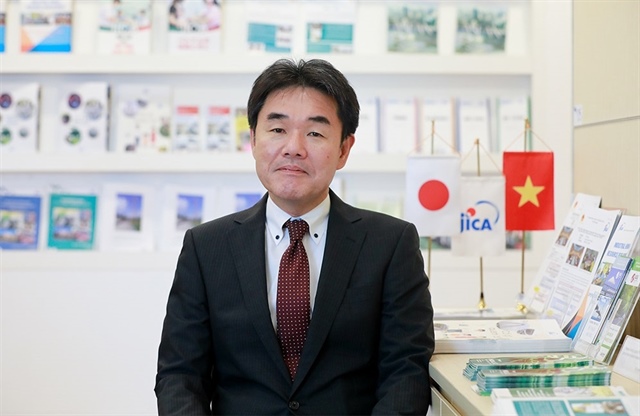
Sugano Yuichi, chief representative, Vietnam Office Japan International Cooperation Agency |
Since Japan resumed its ODA to Vietnam in 1992, the Japanese government has supported human resource development, policy and institutional improvement through technical cooperation, as well as the construction and provision of transport infrastructure, and power supply, through financial cooperation (including ODA loans and grant aid) with the aim of contributing to the socioeconomic development of the country.
Since the beginning, the significant feature of Japanese ODA has been the close combination of technical cooperation and financial assistance to ensure comprehensive cooperation and sustainability of projects.
In recent years, the JICA’s support priorities have been for high-quality growth, human resource development, and response to fragility. To achieve these goals, it has cooperated on numerous projects.
In terms of supporting economic growth, Japan and Vietnam have given high priority to Ho Chi Minh City’s urban railway line 1, the Ben Thanh-Suoi Tien line. In December, Metro Line 1 went into operation and was warmly welcomed by the people of Ho Chi Minh City. The railway is considered the first brick in developing modern public transport in the city, contributing to reducing emissions, developing tourism, creating jobs, and increasing productivity.
Wastewater treatment plants are also something that we have been intensively engaged in. In Ho Chi Minh City, the Binh Hung wastewater treatment plant was put into operation in August. The Binh Hung plant treats wastewater collected from eight districts in the city. This will ensure the reduction and improvement of water pollution in Ho Chi Minh City.
In Hanoi, the Yen Xa wastewater treatment plant is expected to be inaugurated in 2025 with the aim of improving the living environment, natural ecosystems and sanitary conditions in the central urban areas of the To Lich River basin, the left bank of the Nhue river and the Lu River basin.
Human resource is considered a foundation for growth. Remarkably, the Vietnam-Japan University celebrated its 10th anniversary in October and has attracted more and more students. In the academic year 2024-2025, there were 500 undergraduates and 43 masters’ degree graduates enrolled. The first batch of 32 Japanese studies students graduated and half of them already have a job.
The JICA will also continue to focus on grassroots cooperation, including the dispatch of volunteers. Vietnam is one of the countries that receives the most Japanese volunteers. Currently, there are over 40 volunteers working in Vietnam. They work in various fields, such as healthcare, Japanese language education, youth activities, and community development.
Cooperation will continue with Vietnam on economic development and supporting the health sector to improve the environment to help the country maintain its high economic growth journey.
In the health sector, the JICA is implementing a technical cooperation project on telehealth in the northern province of Yen Bai, to improve the capacity of people for health in the province and increase opportunities for people in remote areas to access medical services more conveniently and quickly.
In collaboration with the Ministry of Health, the JICA is conducting technical cooperation on hepatitis prevention in seven provinces across the country. It also emphasises the strengthening of measures for disaster risk reduction. The first sabo dam for reducing damage caused by sediment disaster has been built under a technical cooperation project for strengthening the capacity to cope with and minimise damage caused by flash floods and landslides in the northern mountainous region of Vietnam.
In addition, in the central region, which has suffered a lot of damage caused by floods, we are also supporting the establishment of the integrated flood management plan in the Vu Gia-Thu Bon River basin located in Danang and Quang Nam province.
We also support the Vietnamese government and local affected people in response to extreme natural disasters. Eight days after the Typhoon Yagi made landfall in the northern provinces, we promptly provided emergency relief to help local people in Yen Bai overcome the typhoon and resume normal life.
We also believe that ODA continues to play an important role in infrastructure development, which is inevitable for Vietnam’s future growth. Vietnam has been drastically decreasing borrowing from ODA and seeking finance through their own sources, such as bonds. However, Vietnam still needs to develop infrastructure for economic growth, and there are still many roles that it can play.
Compared with other financial instruments, Japanese ODA loans are more concessional with long repayment periods (about 30-40 years) with low and fixed interest rates. This suits critical and high-quality infrastructure such as the aforementioned railway line in Ho Chi Minh City. Moreover, one of the unique features of Japan’s ODA is technical cooperation, which is mainly provided as grants and plays a significant role in institution building and staff development of the government.
This assistance, which is the combination of loans and grants, will not only help economic growth and improve people’s lives, but also help strengthen the connection between the two countries.







